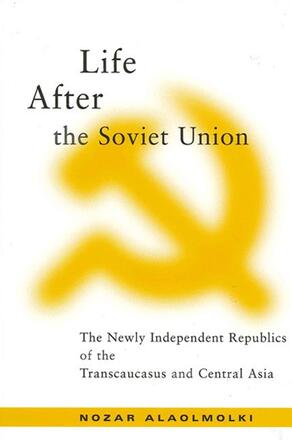
Life After the Soviet Union
The Newly Independent Republics of the Transcaucasus and Central Asia
Alternative formats available from:
Examines the political, social, and economic issues confronted by each of the newly independent republics in the Transcaucasus and Central Asian regions.
Description
In separate chapters covering Azerbaijan, Kyrgyzstan, Turkmenistan, and Uzbekistan, this book examines the impact of the radical social, economic, and political transformations enacted upon them by both Czarist Russia and then the Soviet Union.
With the demise of communist rule, Alaolmolki explores the efforts of the United States,Russia, Iran, Saudi Arabia, and Turkey to influence the newly independent republics, specifically in connection with oil and natural gas concessions and pipelines. Included is a summary of recent developments and the prospect for economic and political progress in the republics.
Nozar Alaolmolki is Professor of Political Science at Hiram College. He is the author of The Persian Gulf Region in the Twenty-First Century: Stability and Change and Struggle for Dominance in the Persian Gulf: Past, Present, and Future Prospects.
Reviews
"Life After the Soviet Union is a well-documented analysis of the emerging political and geo-political realities affecting the future of Central Asia and the Caucasus. Alaolmolki examines some of the most important issues involving the process of political development in the region, its relation with modernization, and attempts to see whether the region's political system will be able to acquire the capacity to sustain new types of goals and demands. " — Ali Jalali, Chief, Farsi Service, Voice of America
"Impressively comprehensive. Due to its vast resources and political position in a new rivalry between the Great Powers, it is important to understand this region in terms of its economy, history, politics, and foreign relations. A very useful contribution to a new area study. " — Houman Sadri, author of Revolutionary States, Leaders, and Foreign Relations: A Comparative Study of China, Cuba, and Iran